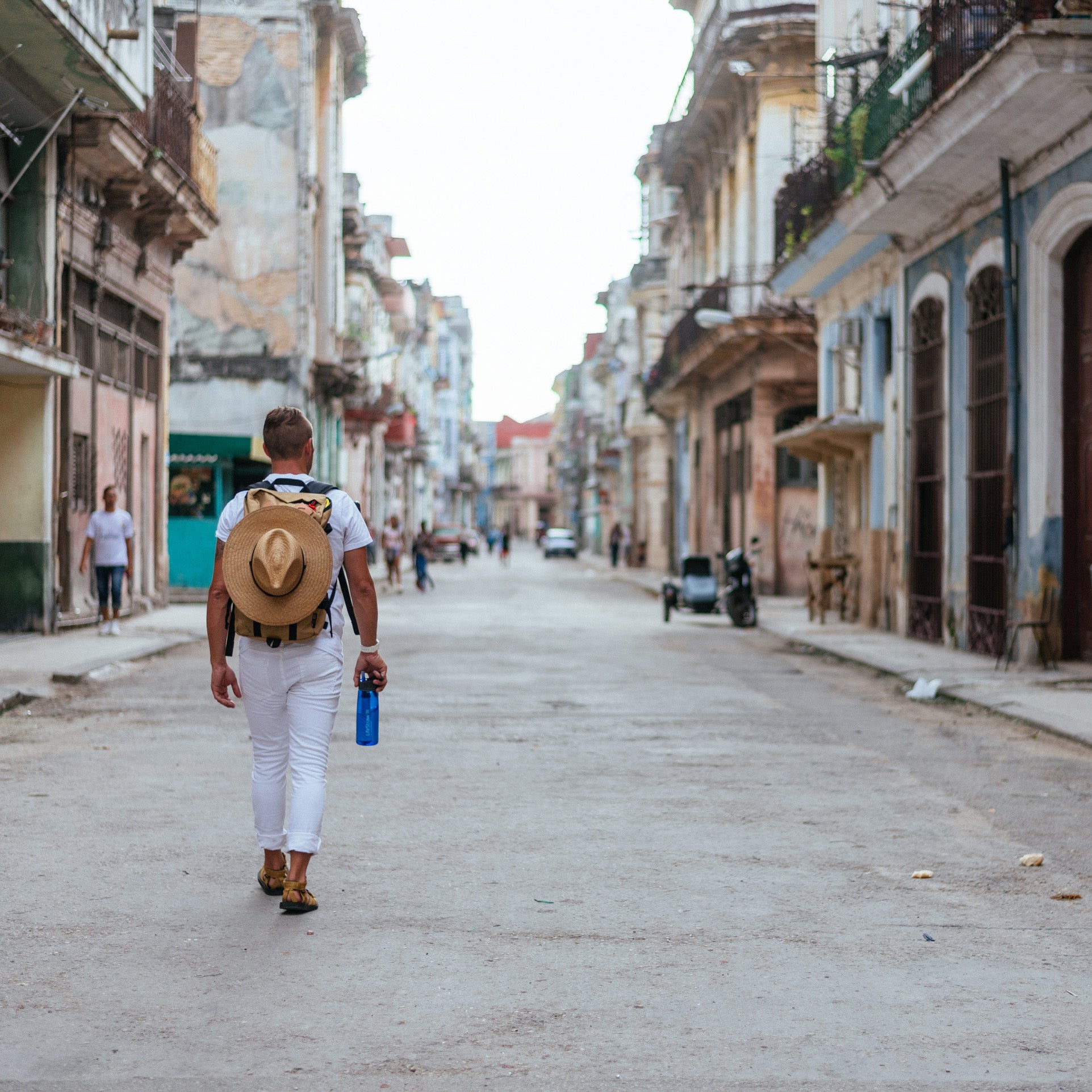“Where are you from?” Asked a Cuban last week.
“Canada!” Answered , enthusiastically.
Americans, stop telling people in foreign countries that you’re from Canada. You’re not fooling anyone, you’re not making yourself look better, and you’re not addressing the root cause of the problem.
I first heard about this harebrained scheme in high school, back in the late 1990s. It was an American system school for kids from military and diplomatic families, stationed in and around London. Our exposure to “foreign” cultures didn’t come from the occasional vacation, it came every day. I’m not sure why, in a country as safe as the United freakin’ Kingdom, some well-meaning parent or teacher decided to bestow it on us, but at some point we were advised that pretending we were from the frozen north, and perhaps even going so far as to sew a maple leaf to our clothes or backpacks, would prevent us from being robbed, kidnapped, or from falling prey to whatever irrational fear was causing adults to lose sleep that week.
Following the September 11, 2001 terror attacks in New York and Washington D.C., and our country’s even more disastrous invasions of first Afghanistan, then Iraq, the whole I’m-from-Canada thing found new popularity. Young people traveling abroad began, in large numbers, to perceive that their country’s image abroad didn’t match the propaganda they’d been raised on at home. The crushing realization that people weren’t as popular as they’d always thought they were was palpable.
“I’m from Canada,” really meant “Please don’t hurt me, scary foreign person from a scary foreign country that I, and millions of my peers have nevertheless chosen to visit.” Or, for some, “Screw you, daddy.” Or, maybe even, “I’m part of the club, I’m foreign too!”
Despite the number of inadvisable, unpopular, sometimes-secret wars we were fighting actually increasing, I noticed that I’m-from-Canada began to fade away during the Obama administration. I guess an eloquently-spoken, well-dressed, half-black President made America cool again, at least in the eyes of Americans traveling abroad.
Now, in the age of Trump, it’s back. You wouldn’t believe the number of Canadian tourists I saw taking selfies in Havana last week.
Did lying about their origin help any of those Americans better fit in? I doubt it.
No one, in any place that tourists visit even semi-regularly, will ever be fooled by an American claiming to be Canadian. We tend to stand out abroad. So if you I’m-from-Canada someone, you’ll be starting that conversation with a transparent lie. You’ll be disrespecting them from the start. You’re dismissing that person as dangerous or as not worthy of the truth. You're insulting someone who might otherwise be a potential friend. By trying to avoid looking like a jerk, you’re being a jerk.
And you’re certainly not making yourself any safer. While it’s absolutely true that traditional tourist traits like staring at your phone instead of paying attention to the world around you, flaunting conspicuous wealth, and demonstrating general cluelessness do make you a target for criminals and other opportunists, the actual geographic origins of your bad choices probably aren’t a factor.
If you want to fit in, work on fitting in, not trying to pretend to be something you’re not. Learn the language. Learn the customs. Dress better. Ditch the fanny pack and giant camera. Make friends.
Of course, safety is also a relative concept. While people in foreign countries might look a little different, and act a little different, you’re probably at far lower risk abroad, than you are at home. Our perception of risk is simply flawed. Take Mexico for instance. Our President says it’s full of criminals, yet . Our murder rate at home? . Would pulling an I’m-from-Canada make you safer in Chicago?
Then, of course, there’s the disparity between what I’m-from-Canada tries to achieve, and its overall impact on the perception of Americans abroad. Are Americans a scared people? Are we rude ones? Are we ashamed of who we are, or of our country’s role in the world? That’s what I’m-from-Canada conveys—it makes the perception of Americans in other countries worse.
Are you worried that people don’t like Americans? Respect them, befriend them, and show them that we aren’t all pathological liars and reality TV hucksters. Are you worried that you’ll be treated badly because you’re American? The Golden Rule applies abroad, just as much as it does at home. Be respectful, and you’ll be treated respectfully. Are you embarrassed of your country’s actions? Take steps to change them. Be a good example, and you’ll help change the way people think about our country.
“I'm from America” should never be a bad thing.


